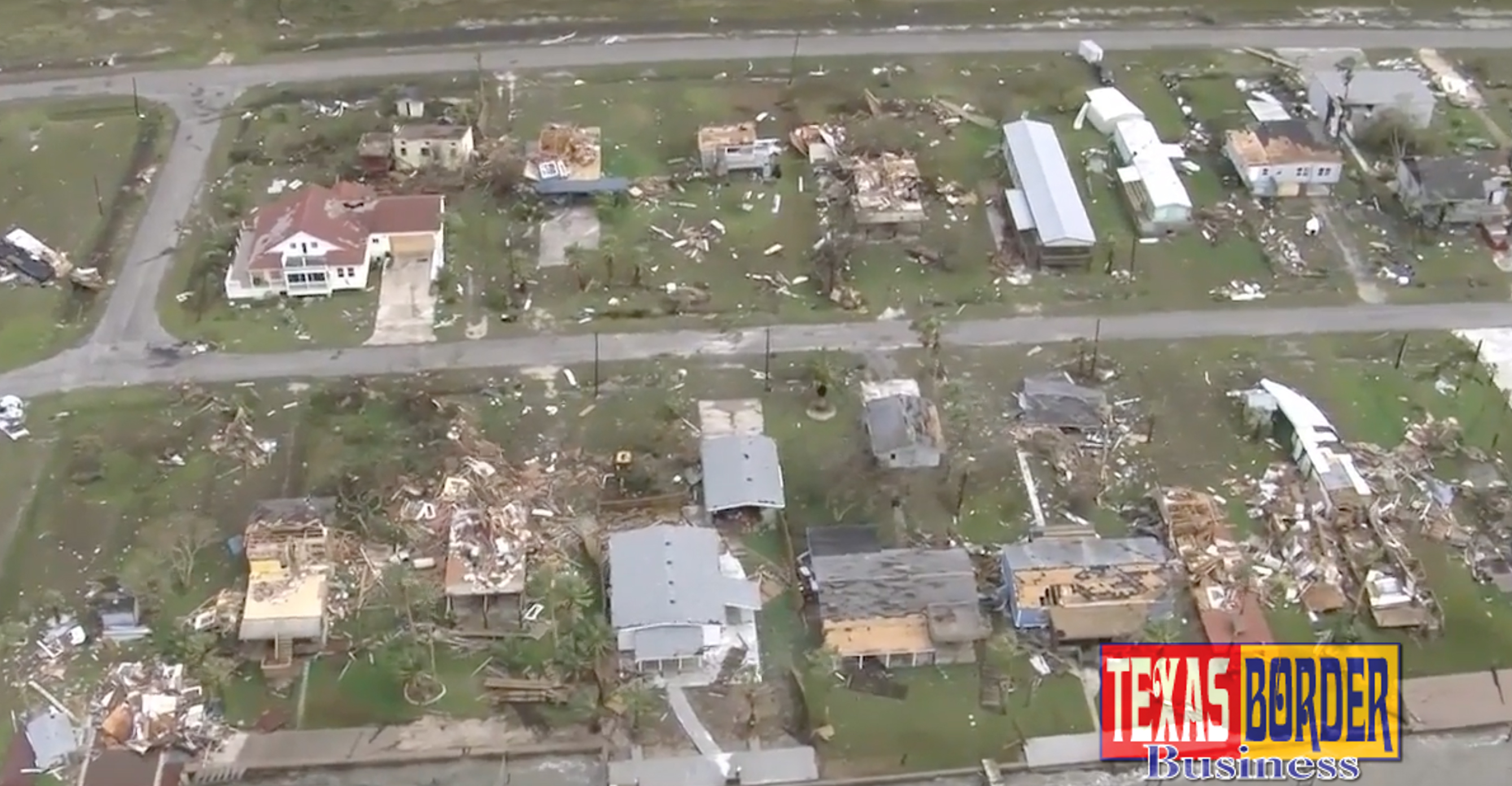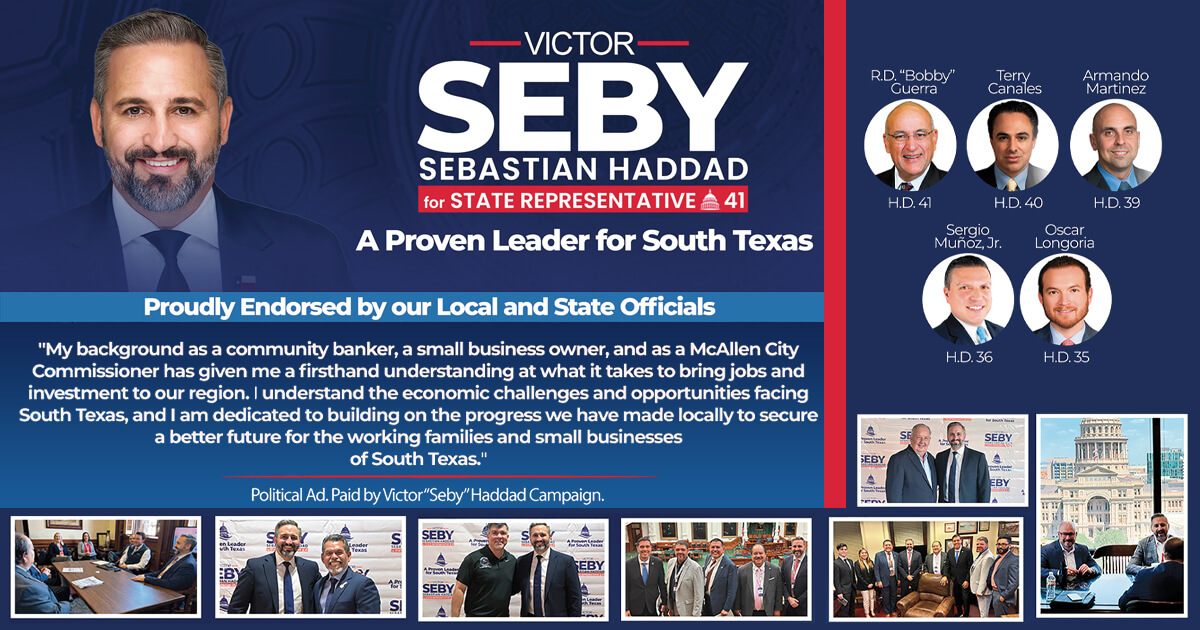
Texas Border Business
 By Dr. M. Ray Perryman
By Dr. M. Ray Perryman
Hurricane Harvey made landfall in Rockport late on Friday, August 25th as a Category 4 hurricane, the strongest storm to hit the US since 2004. Although the weather system was soon downgraded to a tropical storm, the record-level torrential rains that continue to circle the Gulf Coast as I am writing this almost a week later have caused devastating flooding and damage in Houston and the surrounding areas. Federal officials have estimated that 30,000 people will need to seek refuge in shelters and 450,000 will require some sort of disaster assistance by the end of the storm, but those numbers have to be regarded as preliminary.
Since Houston is a major hub for the energy industry, a lot of focus has been on how Harvey will impact oil and gas. The Texas Gulf Coast region is home to nearly a third of the nation’s refining capacity. At least ten facilities in the Houston and Corpus Christi areas have shut down and others are running at less than normal capacity because of the storm, sidelining at least 2.2 million barrels per day of refining capacity. As I pen this epistle, the capacity in Beaumont-Port Arthur and southern Louisiana remains threatened as well.
The full impact of the storm is still uncertain and likely won’t be known until well after the flood waters recede. While refineries can typically reopen in a week or two after a major storm, some were shut down for months after Hurricane Katrina. Damage to equipment from flooding could potentially lead to closures for weeks or even months. Many of the employees that live in the area have either evacuated or are unable to travel due to local flooding, which could also delay reopenings.
Around a quarter of the oil and gas production in the Gulf as well as major pipeline systems are also offline. The combination of lower refining capacity, production, and transportation through pipelines has the possibility of significantly disrupting the supply of oil and gas in the region and even as far away as New England. The price of gasoline is rising, with some analysts expecting an increase of up to 25 cents per gallon in the coming weeks. However, the price is not likely to remain elevated for an extended period once facilities come back online.
In terms of residential damage, an unprecedented number of people have been affected by the floodwaters, not to mention those whose property was damaged due to heavy winds. One estimate by CoreLogic from before the storm indicated that damage to the over 230,000 homes in the path of the storm could reach nearly $40 billion in reconstruction costs. The concentrated flooding that occurred in the Houston area may well push that number higher. Victims of the storm already stretch across 58 counties, and that number could continue to rise.
The major problem with the widespread flooding is that most of these houses do not have flood insurance. Normal home insurance plans cover wind damage, but not flood. Flood insurance is offered by the National Flood Insurance Program, which is run by the Federal Emergency Management Agency (FEMA). According to the Insurance Information Institute, only 15% of residents in Harris County have flood coverage. Also, the Program already has a deficit of well over $20 billion, partly because of past disasters such as Hurricanes Katrina and Sandy. Those without flood insurance will have to apply for grants or low-cost loans, but resources could be limited and funds could be severely delayed due to the volume of claims and intransigence in Washington.
In addition to the residential relief, it will take a while for local businesses to come back online. United Airlines is expecting to lose at least $265 million due to grounded flights because of flooding. Other airlines are also projecting losses due to the closure of both Houston airports which led to more than 1,400 flight cancellations on August 28th alone. Other businesses in the area will have to repair facilities and wait until roads are clear. There will be a long path to recovery for the entire area.
The impact of Hurricane Harvey is clearly going to be catastrophic. Ultimately, the full extent of the damage will not be assessed until rains end and the water recedes. The best estimates to date (from AccuWeather and the National Climatic Data Center) place the damage at $160 billion, but it is much too early to know. If that amount is close to the final number, it will be the costliest storm in US history. A couple of years ago, my firm looked at the effects of a hypothetical storm similar to Katrina hitting the Gulf Coast on the entire Texas economy (it can be downloaded at www.perrymangroup.com). The losses exceeded 5% of annual GDP in the state, although they would be felt over several years. These effects would spread throughout the state.
While the human considerations are obviously paramount, from an economic perspective, the immediate costs will be from the widespread property damage and business interruptions, which could affect areas beyond the Gulf Coast region. For example, in addition to petroleum, the Gulf Coast ports are a critical node for agricultural products, steel, and many containerized products. The supply chain of our highly integrated economy will be temporarily compromised.
Despite the devastation, the fundamental factors driving the growth of the Gulf Coast region remain intact and our economic institutions are strong. The area will take a sizable hit, but will resume its expansionary pattern in the near future. When all is said and done, the overall economy will be just fine. For now, let’s focus on the victims and the human tragedy that demands a proper public and private sector response.
___________________________________________________________________
Dr. M. Ray Perryman is President and Chief Executive Officer of The Perryman Group (www.perrymangroup.com). He also serves as Institute Distinguished Professor of Economic Theory and Method at the International Institute for Advanced Studies.














